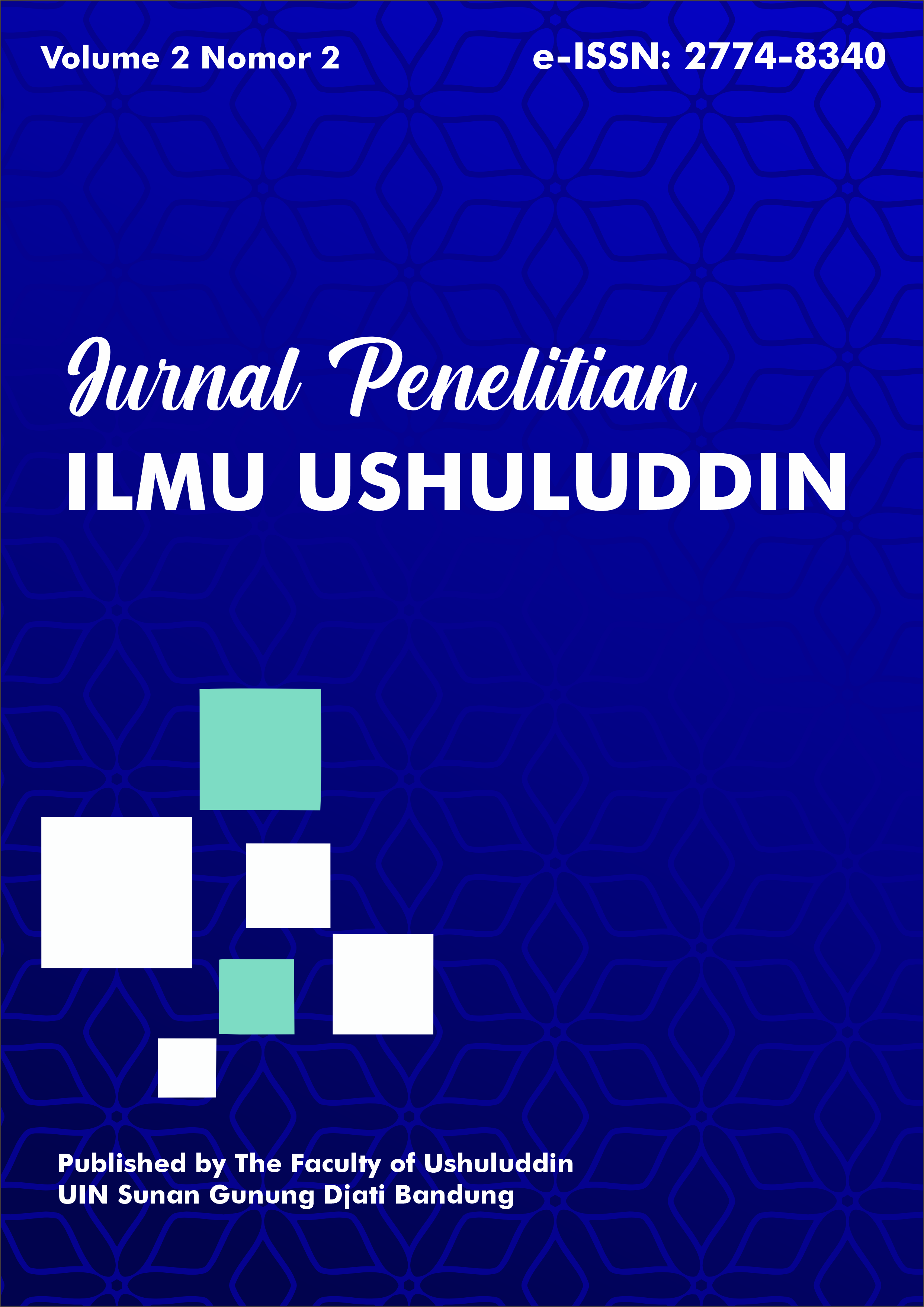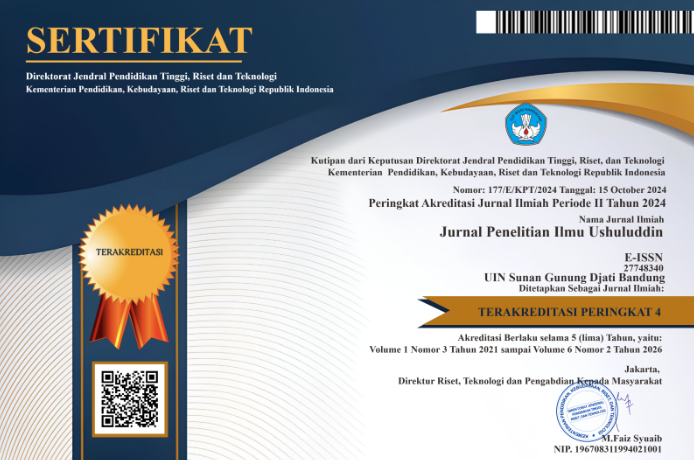Tinjauan Etika Aksiologis Max Scheler dalam Tradisi Ngarot di Desa Karedok Kecamatan Jatigede Kabupaten Sumedang
DOI:
https://doi.org/10.15575/jpiu.15055Keywords:
Axiological Ethics, Karedok Village, Ngarot TraditionAbstract
The purpose of this paper is to answer the problems that are the subject of the research: 1) the Ngarot tradition in Karedok Village; 2) The procession of carrying out the Ngarot tradition in Karedok Village; and 3) Max Sheler's Akiological Ethics Analysis of the Ngarot tradition in Karedok Village. This research is a field research, using qualitative methods, and Max Scheler's value hierarchy theory as an analytical tool. The findings of this research are, first, historically, the Ngarot ceremony emerged as a community response to the situation that occurred at the end of 1900, Karedok village experienced a disaster that caused many people to get sick, even die, to crop failure. This tradition is a form of gratitude to Allah SWT for the abundance of gifts given. Second, the Ngarot ceremony is carried out in several stages, namely the slaughter of buffalo led by Kuncen and Lebe. Then the cultural carnival, mapag umbrella, tayuban art, and finally the village celebration. Third, the value of pleasure is reflected in the enthusiasm of the community, such as togetherness, cohesiveness, enjoying munding meat (buffalo) and in arts or folk entertainment. The value of life is reflected in the procession of slaughtering and burying buffalo heads and the art of tayuban. The spiritual value when Lebe reads the consent and continues with a prayer which is followed and agreed upon by the community. And the value of profanity is reflected in the concept of tradition itself and the use of munding jalu (male buffalo).References
Alfan, M. (2013). Filsafat Kebudayaan. Bandung: Pustaka Setia.
Andini, M. E. (2017). Implementasi Pelestarian Nilai-nilai Adat Ngarot Kaitannya Dengan Pembentukan Karakter Jiwa Nasionalisme (Studi Deskriptif Masyarakat Karedok Kabupaten Sumedang). Bandung: Universitas Pasundan.
Bertens, K. (1983). Filsafat Barat Abad XX. Jakarta: Gramedia.
Frondizi, R. (2011). Pengantar Filsafat Nilai, alih bahasa Cuk Ananta Wijaya. Yogyakarta: Pustaka Pelajar.
Jamil, A. (2000). Islam dan Kebudayaan Jawa. Yogyakarta: Gama Media.
Mutoharoh, A. S. (2019). Eksistensi Upacara Adat Ngarot Dalam Kehidupan Masyarakat (Studi Deskriptif Desa Karedok Kecamatan Jatigede Kabupaten Sumedang). UIN Sunan Gunung Djati Bandung.
Noor, J. (2013). Metodologi Penelitian. Jakarta: Prenada Media.
Scheler, M. & N. H. (2011). Material Ethics of Value, trans. Eugene Kelly. New York: Spinger.
Soehadha, Moh. (2016). Tauhid Budaya: Strategi Sinergitas Islam dan Budaya Lokal dalam Perspektif Antropologi Islam. Jurnal Tarjih, 13.
Sudarto. (1996). Metodologi Penelitian Filsafat. Jakarta: PT. RajaGrafindo Persada.
Sugiyono. (2014). Metode Penelitian Kuantitatif, Kualitatif, dan R & D. Bandung: Alfabeta.
Surjawa. (1999). Manusia dan Fenomena Budaya Menuju Perspektif Moralitas Agama (hlm. 10–12). Yogyakarta: Pustaka Pelajar.
Suseno, F. M. (2000). 12 Tokoh Etika Abad ke-20. Yogyakarta: Kanisius.
Tarsidi, E. & D. Z. (2017). Upacara Adat Ngarot: Spiritualitas dan Gotong Royong Masyarakat Sumedang. Prosiding Konferensi Nasional Kewarganegaraan, Vol. 3. No. 2., 52–59.
Wahana, P. (2004). Nilai Etika Aksiologis Max Scheler. Yogyakarta: Kamisius.
Downloads
Published
Issue
Section
License
Authors who publish in Jurnal Penelitian Ilmu Ushuluddin agree to the following terms:
- Authors retain copyright and grant the journal right of first publication with the work simultaneously licensed under an Attribution-ShareAlike 4.0 International (CC BY-SA 4.0) License that allows others to share the work with an acknowledgment of the work's authorship and initial publication in this journal.
- Authors are able to enter into separate, additional contractual arrangements for the non-exclusive distribution of the journal's published version of the work (e.g., post it to an institutional repository or publish it in a book), with an acknowledgment of its initial publication in this journal.
- Authors are permitted and encouraged to post their work online (e.g., in institutional repositories or on their website) prior to and during the submission process, as it can lead to productive exchanges, as well as earlier and greater citation of published work (See The Effect of Open Access).












